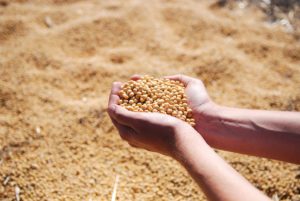
Photo by Autumn Mott on Unsplash
So, I am supposed to be studying for a big Final tomorrow in TCM Pathology (Traditional Chinese Medicine Pathology), but am getting seriously sidetracked. It seems that when you have something you NEED to do, it’s so much easier to spend time researching things that have no time constraint at all and nothing to do with your tests… well at least it’s health related. I just got an email from a good friend asking for a reference to an article on saturated fat intake, eggs and cholesterol and their importance and relation to the primal diet, sometimes referred to as the paleo-diet (these two are very slightly different: the primal diet puts an emphasis on fats in the diet, whereas the Paleo just on Paleolithic foods). Basically, without getting into too much detail and to give you an idea of what it’s all about; it’s a diet that is low in carbohydrates, has a moderate amount of proteins and is high in fats. Sounds exactly the opposite of the typical American diet we’ve all been taught to follow our whole lives right? Well, for more information on this, I’m going to have to send you elsewhere, as I do still have to study for a huge Final this evening and this is a big topic of conversation that I love researching, but could easily get lost for hours in it.
So, back to my original point; my friend has a client who just recently inquired about the idea of eating saturated fats and whether or not eggs (the concept of the whole egg) were something that could be considered healthy or would just raise cholesterol. Well, I started researching and found all these studies and quotes; but I wanted to find the best research, the most up to date and most relevant on the topic so I could hand it off to her as well as keep all these informational gems bookmarked for myself to use as a quick reference. Instead of spending hours on the topic, like I was starting to do, I figured why not just ask one of the most informed persons in the business of all things primal…
The following information was passed on to me from Nora Gedgaudas, which I have the pleasure of knowing through my gym; Spinach, (and yes that is the name of the gym it’s not a Vegan restaurant in Downtown Portland). She is a Certified Nutritional Therapist, as well as a Board Certified Holistic Nutritionist through the NANP & a Clinical Neuro-Feedback Specialist… and this is just the beginning of a long list of achievements and endeavors which you can read more about on her Bio. While you are in the neighborhood, I highly recommend to check out the rest of her website Primal Body — Primal Mind; especially if you have an interest in the primal diet.
So, I figured what better way to answer my friends questions by gathering all the best information on the subject together in one place; selfishly for my own referral and to share with others as a one stop shop for questions on the subject of “saturated fats & cholesterol in the diet: good or bad”.
Nora was generous enough to pass on to me her quick reference guide to the best available research as of now:
- Meta-analysis of prospective cohort studies evaluating the association of saturated fat with cardiovascular disease
- This link will bring you to the Abstract online, which will tell you the gist of it. Basically, the study took 21 others studies (a meta-analysis) and looked at their outcomes as a whole. This study was based on the previous idea that a reduction in dietary saturated fat will improve cardiovascular health.
- They wanted to see if there was indeed an associated increased risk of CHD & CVD with dietary Saturated Fats & what they found was…
- …”there is no significant evidence for concluding that dietary saturated fat is associated with an increased risk of CHD or CVD”…
- Here, CHD stands for Coronary Heart Disease & CVD for Cardiovascular Disease; both of which according to the study are inclusive of Stroke.
If this whole idea is boggling to you and this is the first you’ve heard of it, I urge you to check out this article FIRST before jumping head first into the debate. It is a wonderful representation of how the body utilizes fats, what Saturated vs. Unsaturated fats are and how cholesterol plays a role in all of this:
Or you can reference one of my previous articles on cholesterol:
If you prefer instead to listen to a talk about this concept; here is a link to one of Nora’s Voice America: Health & Wellness episodes:
- My Big Fat Diet
- On this particular show, Nora hosts a guest speaker Dr. Jay Wortman, who recently did a documentary on fats in the diet in a specific population of people in British Columbia over the course of a year. The results were astounding and together a total of 12,000 pounds were lost through a low carbohydrate, moderate protein and high fat diet… The show is about an hour long; but it’s a good one!
If you already have a pretty good grasp on the idea and want to get a little more into the odds and ends of it all, here is another website, that I admit I haven’t gotten into yet; but looks like it would be very informative; if not only because of the name:
And… just for a little more light reading, but more for my benefit to finally get all these little informational gems in one place; here is another article Nora shared with me, which covers the whole concept of Saturated fats in the diet, & the misconception our country has about cholesterol:
Now, onto the subject of the egg…
Good or bad? Whole egg or egg whites? Well, I’m on team “Whole Egg” without question. Eggs are by far one of the most awesome source of nutrition all wrapped up nicely in a cheap, easy and delicious little package. They are a perfect balance of fats and protein and all its integral parts work synergistically with your body to pack a mean nutritional punch!
- Smart Fuel: Eggs
- Eggs are an excellent source of protein and have all 9 essential amino acids. They are also an excellent source of Choline; a vitamin that has a function in cell membranes and a particular affinity to brain cells; improving overall brain health and development.
- Superfood of the week: Eggs
- Eggs have been shown to improve vision, heart health, baby health and even help with weight loss… just to name a few!
- Go Ahead Eat The Yolk
- The egg yolk contains all the good stuff! When you eat the yolk, you get all the fat-soluble vitamins (A, D, E & K) along with Zinc, Folate and Calcium. Not to mention that the balance between the egg yolk and the egg white essentially balances the amino acid profile of the whole egg. So, by cutting out the yolk, you miss out on the good stuff… now why would you want to do that?
I realize that this concept may be new to some of you, but I urge you to inform yourself before you just accept one idea over another. There is plenty of research out there, you just have to take the time and find trusted sources that give you good up to date information.
Whew… now, where did the time go, see I knew I’d end up spending hours on this… good thing I love learning, and sharing information with the masses! Hope you enjoy and learned something 🙂
Until next time, I’m off to get studying & be well~
Erin
Sources:
Enig, M. PhD & Fallon, S. The oiling of america. Retrieved June 16, 2010, from http://www.westonaprice.org/know-your-fats/525-the-oiling-of-america.html
Gedgaudas, N., & Wortman, J. (2009). Primal Body — Primal Mind Radio. Retrieved June 16, 2010 from Voice America: Health & Wellness: http://www.voiceamerica.com/voiceamerica/vepisode.aspx?aid=44932.
Rao, N. ND. Go ahead eat the yolk. Retrieved June 16, 2010, from http://www.wellwire.com/health/nutrition-health/go-ahead-and-eat-the-yolk
Rao, N. ND. Superfood of the week: eggs. Retrieved June 16, 2010, from http://www.wellwire.com/food/superfoods-food/eggs
Resko, E. So easy a caveman can do it. Retrieved June 16, 2010, from http://essentialhealing.wordpress.com/?s=cholesterol
Siri-tarino, P. W., Sun, Q., Hu, F. B., & Krauss, R. M. (2010). Meta-analysis of prospective cohort studies evaluating the association of saturated fat with cardiovascular . The American Journal of Clinical Nutrition, 91(3), 535-546.
Sisson, M. Smart fuel: eggs. Retrieved June 16, 2010, from http://www.marksdailyapple.com/eggs/
Sisson, M. The definitive guide to cholesterol. Retrieved June 16, 2010, from http://www.marksdailyapple.com/cholesterol/





